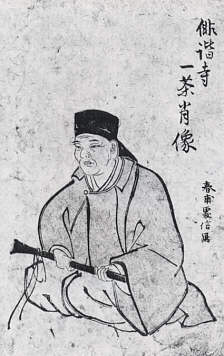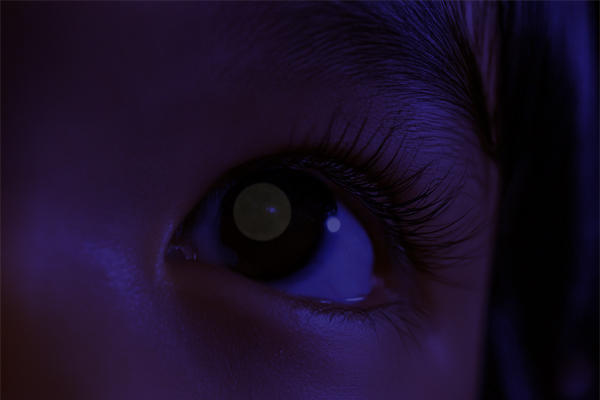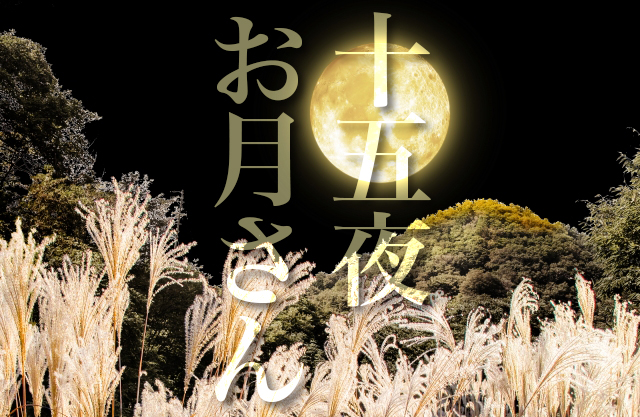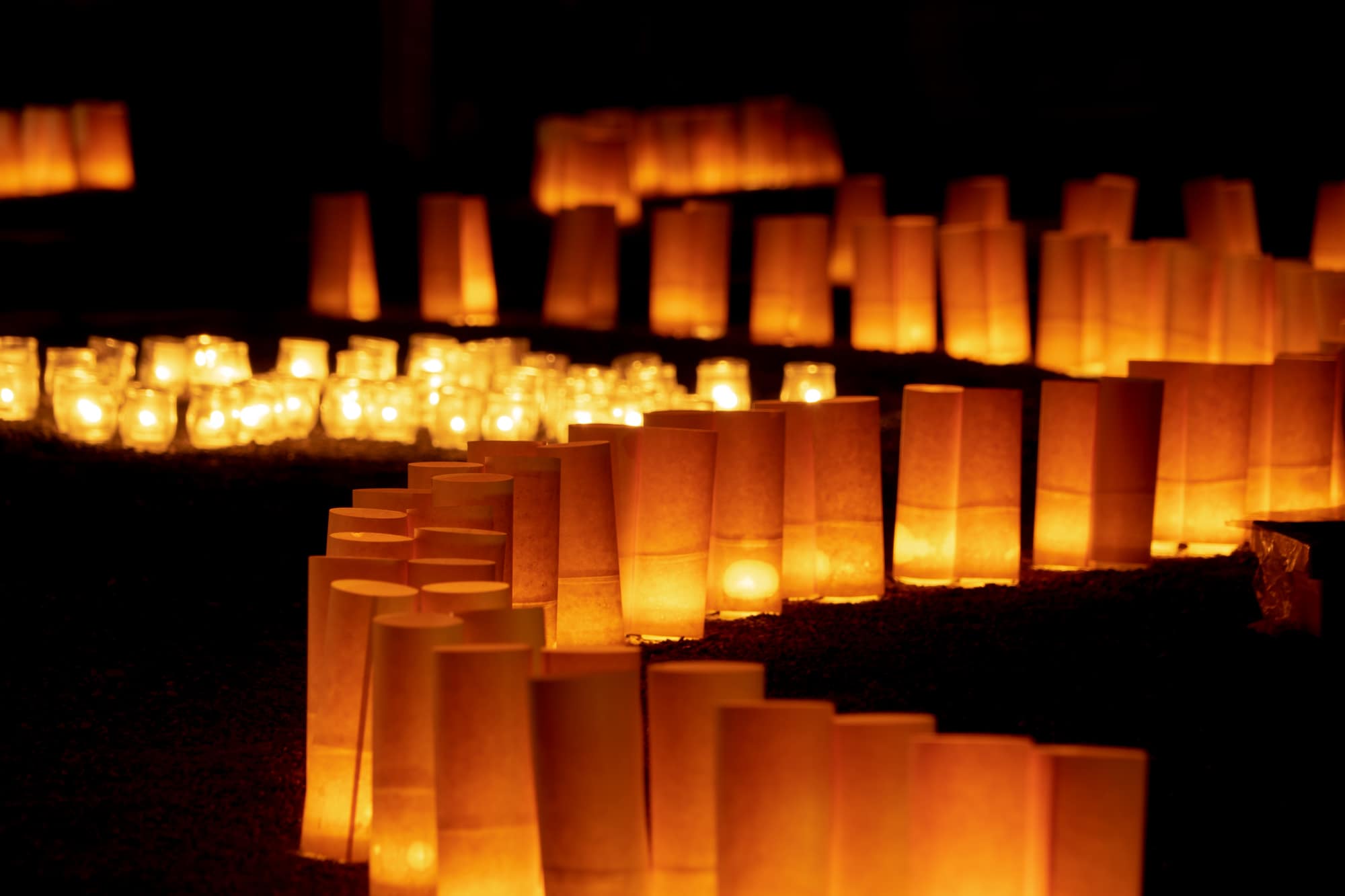Jyuugoya otsukisan
Jyuugoya otsukisan gokigen san
Baaya wa oitoma torimashitaJyuugoya otsukisan imouto wa
Inakae morarete yukimashitaJyuugoya otsukisan kakasan ni
Moichido watashi wa aitai naLyricist:NOGUCHI Ujyou
Composer:MOTOORI Nagayo
in 1920
The Harvest Moon
the harvest moon, how about your?
The servant’s mother came out.
the harvest moon, My little sister was
trapped in the countryside.
the harvest moon, To my mom,
I want to see you again.

Moon-viewing is incomplete without offering rice dumplings. / By katorisi – Own work, CC BY 3.0, Link
The Custom of Admiring the Harvest Moon
In Japan, the 15th day of the 8th month of the lunar calendar (around late September today) is called Jyuugoya or Chuushuu no Meigetsu, and it is celebrated as the night when the moon is at its most beautiful of the year. On this evening, people place offerings of pampas grass, rice dumplings, and seasonal harvests, and enjoy gazing at the moon in the crisp autumn air. The sight of families and friends looking up at the bright moon, sometimes with a cup of sake in hand, conveys a uniquely Japanese autumn atmosphere.
Haiku and the Humor of the Full Moon
KOBAYASHI Issa, one of the representative haiku poets of the Edo period, composed the following verse:
Meigetsu wo totte kurero to naku ko kana
名月を取ってくれろと泣く子かな
(A child carried on his back points to the full moon and cries, “Please get it for me.”)

Yoshi Canopus – 自ら撮影, CC 表示-継承 3.0, リンクによる
This scene, humorous in tone yet full of seasonal elegance, is a well-known haiku even today. It reminds us of the cultural richness of the Meigetsu (harvest moon).
The Poetic Eye of NOGUCHI Ujyou
The lyrics of Jyuugoya Otsukisan were written by NOGUCHI Ujyou, a renowned poet of children’s songs. He is also the author of lyrics for masterpieces such as “Nanatsu no Ko” and “Akai Kutsu”. NOGUCHI’s strength lay in his ability to depict the world through the innocent eyes of children, while subtly weaving in the realities of the society of his time. In this song, too, beneath the simple words of a child addressing the moon lies a heartfelt longing for the mother he misses.
Hidden Social Realities of the Taishou Period
At first glance, the lyrics of Jyuugoya Otsukisan may sound like an innocent child’s monologue to the moon. Yet, in reality, they reflect the social struggles of the Taishou era. After experiencing an economic boom during World War I, Japan plunged into a postwar recession. Many factory workers in the cities lost their jobs and were forced to return to the countryside, placing heavy economic burdens on farming households.
Family Separation and the Cry of a Child’s Heart
Because of this hardship, many rural households had to let go of their housekeepers (baaya), and poverty forced them to send their younger daughters away for work. In this context, the child singing longs for his absent mother, perhaps never to see her again, entrusting his sorrow to the moon. Simple though the lyrics may be, they are imbued with the deep sadness of family separation in that era.

The Power of MOTOORI Nagayo’s Melody
The melody was composed by MOTOORI Nagayo. His music, at once beautiful and tinged with melancholy, brought out the sorrow of the child’s heart and the shadow of society hidden behind the lyrics. The harmony of the moon’s beauty with this sadness made the song unforgettable, leaving a deep impression on Japanese hearts.





コメント